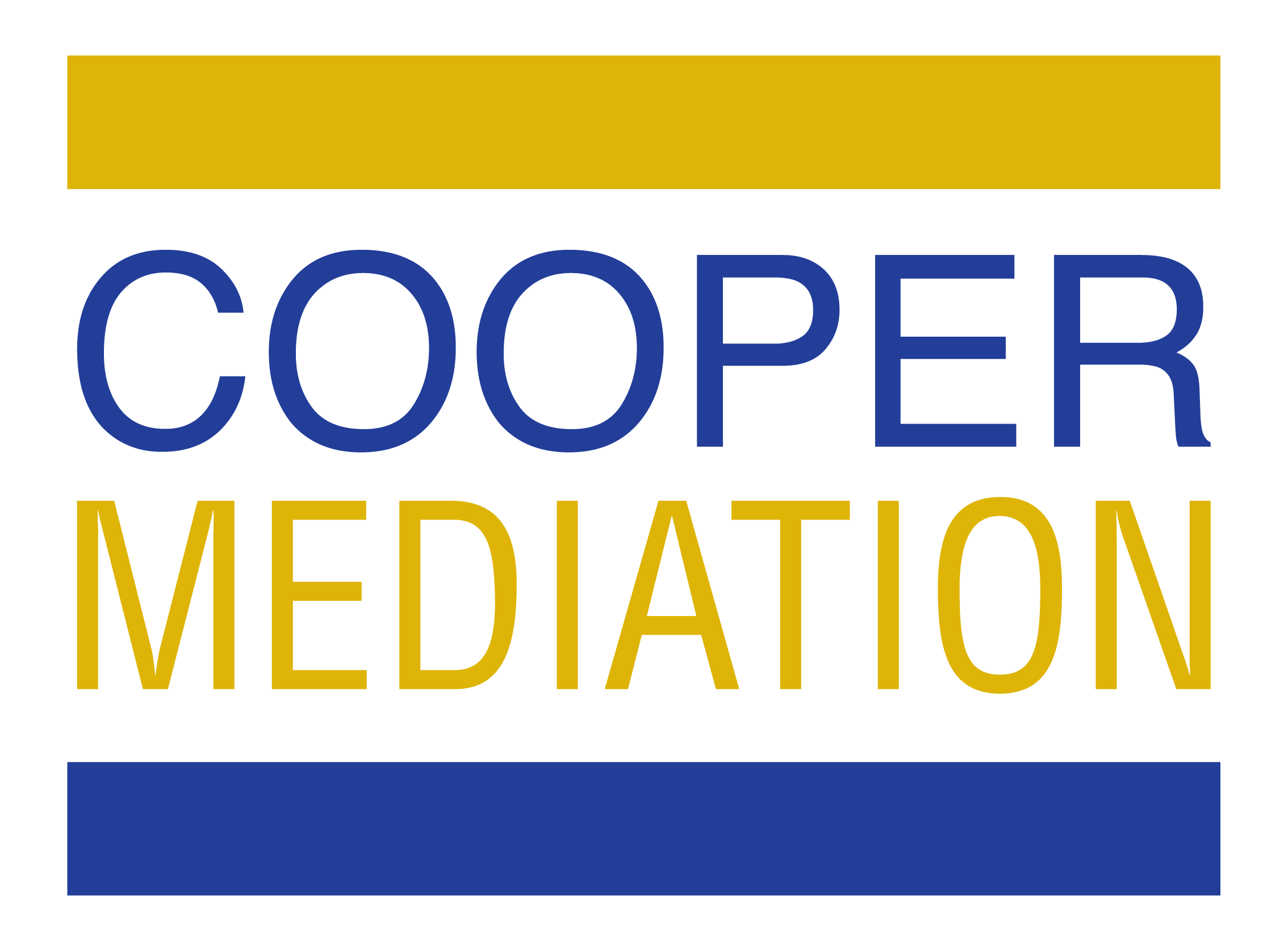
01 Jun Understanding Implicit Bias in Mediation
Imagine a world free from bias? It would likely be a world without humans. Like it or not, cognitive biases are very much a part of humanity.
As much as we may tell ourselves that we will enter negotiations with an open mind and evaluate offers fairly and free from influence, we all carry certain implicit cognitive biases with us wherever we go. But does that mean we should just throw our hands up and admit that bias is a fact of life that we will all just have to put up with? Not necessarily.
In this blog post, I examine some common types of implicit cognitive biases people bring into mediation. Recognizing these biases and consciously checking to see if you or your client might be exhibiting them is the first step to release their shackles over our decision-making. We may never conquer our human biases, but we can certainly wrestle them to the ground when they stand in the way of reaching an informed and sensible settlement.
Cognitive Bias in Mediation
Do you see things as they really are? When you look in a mirror, is the reflection looking back at you exactly as it seems? Or might you be looking at a fun-house mirror without knowing it and seeing distortions that you convince yourself are normal?
According to behaviour psychologists, we might be looking at fun house mirrors more than we think. In an informative article titled “Why Can’t They Settle: The Psychology of Relational Disputes,”[1] writers Harry L. Munsinger and Donald R. Philbin Jr. examine several biases that influence positions during negotiations. They note that common cognitive biases, which include “optimism, anchoring, sunk costs, mental accounting, confirmation bias, herd behavior, loss aversion, contrast effects, and compromise effects,” can be roughly grouped to distortions of how we see ourselves, how we see others and how we see subject matter before us.
I examine some of the biases that contribute to the first and last of these groups of distortions. In a future blog post I examine how our implicit cognitive biases may influence how people view opposing parties to the detriment of their own desire for settlement.
Anchoring
Human beings can be very stubborn. When entering negotiations we are often overly wedded to where we begin. Rather than catching wind in our sails that lead us to a destination that is agreeable to both parties, we tend to throw an anchor overboard when we set sail that acts as a significant drag on movement.
To combat this, ensure you enter mediation focussed on where you want to go. Your target range for settlement should be realistic. Mentally preparing yourself for the idea that settlement will likely never be at your starting position will help you to pull up that anchor and give you flexibility to move without mourning over losses from that movement.
Optimism
When you and your client are putting together your case, you may risk falling in love with it. With human nature being naturally more optimistic than pessimistic, you may start convincing yourself of the inherent value and rightness of your case. Perhaps you may even succumb to some confirmation bias and start looking overwhelmingly for opinions that support yours. As Munsinger and Philbin Jr. note, this optimism and belief in your cause may be a positive when trying to persuade a judge or jury at trial; but it can “interfere with a realistic evaluation of the case during mediation.”
Playing devil’s advocate and zealously poking holes in your own case will likely depress your client and may prompt a “fight or flight” response. However, if you prepare yourself and your client by considering both the strengths and weaknesses of your case and the relative merits of the opposing party’s arguments, you may help to prompt reflection that tempers optimism with a measure of realism. This realism often helps to establish the conditions for movement.
Sunk Costs, Mental Accounting, Loss Aversion and the Endowment Effect
The human mind can certainly play some impressive tricks when it comes to money. Objective financial analysis may be the goal, but our emotional attachment to certain assets and fears of losing money can lead us to make some questionable judgments about the true value of a dollar.
The litigation process costs money. Much like taxes, it’s probably safe to say that no one actually enjoys paying these costs, but it’s important to understand and be rational about why they are necessary. When a party at mediation becomes stuck on sunk costs – money that will likely never be recouped through a settlement or judgment – they may be less likely to show movement towards a resolution.
Moreover, we sometimes place value on assets that are not truly objective. Behavioural psychologists note that we tend to place more value on assets that we already own than non-owned assets of equivalent financial value. We may attach a certain added value to an asset for emotional reasons – such as a house – than numbers on a balance sheet would suggest it’s worth.
Finally, people tend to respond more to loss than gains of equivalent value. The human brain requires more oxygen to process a loss than a gain according to functional magnetic resonance imaging (fMRI) tests. This suggests losses have greater psychological meaning than gains for people.
The combination of not wanting to lose money or assets that we already own or attaching emotional value to certain items can make for some interesting moments during negotiations. To help combat bias leading to rigid or unreasonable attachment to monetary assets, a thoughtful risk analysis can help both you and your client to understand the true cost and value of working towards a mutually agreeable settlement as opposed to the uncertainty of court.
First Impressions Need Not Be Lasting Impressions
When reading mediation memos, we often tend to see the position a lawyer will take to trial and not one that works especially well for discussion, negotiation and reflection. Partly, this is as a result of the implicit cognitive biases that make us uniquely human.
We wear rose-coloured glasses when thinking of our own position and the merits of our cases. We can be quite stubborn when asked to move away from our starting points and tend to use them as points of reference that make us feel that movement equals loss. We have ways of valuing money and assets that don’t translate in objective evaluations.
In opening or briefs, lawyers often present very black and white positions of their clients’ positions and can have quite the flare for drama when they appear at the starting line for mediation and settlement talks.
While it’s important to remember that mediation is not a trial and these talks require a different set of skills and approaches, it’s also important to reflect on our subconscious biases that may set up obstacles to making mediation successful.
It always helps for lawyers and clients to be aware of these biases in advance of mediation, but a skilled, experienced and effective mediator will always be able to draw from a toolkit to assist with this process.
ABOUT THE AUTHOR
 Jonathan T. Cooper is the taller, younger and non-bow-tied mediator with Cooper Mediation Inc. He mediates primarily, but not exclusively, in the area of personal injury and insurance.
Jonathan T. Cooper is the taller, younger and non-bow-tied mediator with Cooper Mediation Inc. He mediates primarily, but not exclusively, in the area of personal injury and insurance.
Jon can be reached at jon@coopermediation.ca or at (647) 993-2667.
To schedule a mediation with Jon, visit: http://coopermediation.ca/jonathans-online-calendar/.
[1] Harry L. Munsinger and Donald R. Philbin Jr. “Why Can’t They Settle: The Psychology of Relational Disputes.” The Cardozo Journal of Conflict Resolution, Vol 18, 2017, pp. 311-362.
